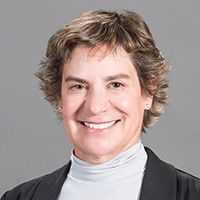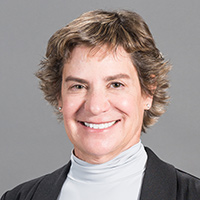Planning Your Digital Afterlife
Figure out what will happen with your digital assets such as emails, social networks and online financial accounts after you die.

Profit and prosper with the best of Kiplinger's advice on investing, taxes, retirement, personal finance and much more. Delivered daily. Enter your email in the box and click Sign Me Up.
You are now subscribed
Your newsletter sign-up was successful
Want to add more newsletters?
"There are three kinds of death in this world. There's heart death, there's brain death, and there's being off the network." — Guy Almes, Director of the Academy for Advanced Telecommunications and Learning Technologies, Texas A&M University.
Almost all of us have a digital life and digital assets, including files stored on your devices such as desktops, laptops, tablets, storage devices and smartphones. The term "digital assets" also includes emails, digital music, digital photographs, digital videos, software licenses, social network accounts, file sharing accounts and financial accounts.
What happens to this digital data if you die or become incapacitated?
From just $107.88 $24.99 for Kiplinger Personal Finance
Become a smarter, better informed investor. Subscribe from just $107.88 $24.99, plus get up to 4 Special Issues

Sign up for Kiplinger’s Free Newsletters
Profit and prosper with the best of expert advice on investing, taxes, retirement, personal finance and more - straight to your e-mail.
Profit and prosper with the best of expert advice - straight to your e-mail.
First, someone has to locate your digital assets. Unlike photo albums or books on your shelves, digital assets can be hard to find. Someone needs to check your computer, smart phone and any hard drives or USB drives you may own. Next, that someone should look for your content on social networks such as Facebook, Instagram and LinkedIn or information stored in cloud services including Google Drive or iCloud. There are also your financial accounts for which paper statements are no longer received and personal credit data stored on online shopping sites such as Amazon or Zappos.
Once your digital data is located, the next hurdle is to gain access to your data. Someone will need log-in credentials and passwords. However, even once they are in, they will still need to figure out what can be legally done with the data. While you may have purchased a movie, a book, or music online and downloaded the movie or music to your device, in most cases, you do not actually own the music, books or movies that you have downloaded. Most likely, you have purchased a license to listen, watch or read the book for the rest of your life, but when you die the license expires.
Most email companies' terms of service agreements prohibit anyone from accessing an account that is not their own. Currently, Google lets you assign an "inactive account manager," who can access your account in the event of your death, and Facebook lets you decide whether your account should be memorialized or be deleted after you die.
However, in August, California passed the California Revised Uniform Fiduciary Access to Digital Assets Act, which established guidelines for how and when companies can share an individual's emails, instant messages and other digital records following death. The new law, approved by the Governor on September 24th, allows an individual to "use an online tool to direct the custodian to disclose or not disclose some or all of the user's digital assets to a designated recipient." A user may also provide instructions in his or her will. If the online tool contradicts the individual's will, then the instructions in the online tool must be followed. The new law also states that an individual's written instructions will override the custodian's (such as a Google or Facebook) terms of service.
What should you do to help ensure the transition of your digital assets when you die or become incapacitated?
Become more aware of the digital assets that you have, and keep an updated inventory of it all, including where the data is stored.
Consider naming a digital fiduciary in your estate planning documents (your will, trust, durable power of attorney). This person will provide the necessary information to service providers and gain access to download or delete digital information. The person you have chosen to be the legal representative of your will and trust may not have the skill sets to deal with your digital assets. Your digital executor should be able to understand and manage the technical aspects of archiving or managing digital data. If you make such directions in online tools, make sure the directions are consistent with what has been provided for in your will.
Also, making certain that your digital fiduciary will have access to your computer and your passwords is critical. I am reminded of an estate administration I handled years ago—the widow could not unlock her husband's computer where all of their financial information was stored. The mental anguish and financial toll on the widow was huge. Passwords have become an essential part of each of our lives. You may no longer receive monthly paper statements of financial accounts or billing statements, and the only way to access the data may be through a password. Without your passwords, your successor trustee may not be able to pay your bills or monitor your credit card accounts. If you use online shopping accounts with stored credit card information for future reference, delays in closing these accounts after you pass away can result in fraudulent purchases. Passwords are essential in gaining access to these accounts to make changes.
Each of us has our own method of keeping track of passwords. Do you keep a password protected word document stored in the cloud or backed up to a USB drive? Or are your passwords stored with an electronic password manager that allows you to enter all of your passwords in a single database and locked with a master password? Both of these methods can work, as long as you keep the information up to date and let someone know where your passwords are kept. More recently, a new business model of digital gatekeepers has arisen. For a fee, a digital gatekeeper will store data that you enter and release it upon death in accordance with your instructions.
Leaving a legacy that works best for your loved ones means keeping up with changing times. Further, the components of your current estate plan may not fully complement the many facets of your digital life, and you may wish to discuss with your estate-planning attorney whether any updates to your current estate plan are needed.
Judy Gordon is an Estate Planning Advisor with B|O|S, an independent, fee-only financial planning and investment advisory firm.
Disclaimer: The material provided is for informational purposes only and is not intended to be a source of any specific recommendation. The responsibility for assessing its relevance to any reader rests with that reader. Opinions expressed are as of the date noted and are subject to change.
Profit and prosper with the best of Kiplinger's advice on investing, taxes, retirement, personal finance and much more. Delivered daily. Enter your email in the box and click Sign Me Up.

In 2016, Judy Gordon joined B|O|S in San Francisco as Estate Planning Advisor after a 35-year legal career in sophisticated estate and gift tax planning, charitable planning and probate and trust administration. She provides consulting advice for private clients and advisors on wealth transfer strategies, tax planning opportunities, and trust and estate administration. She lives in Palo Alto.
Gordon received her B.A. in Psychology at the University of Florida, her J.D. at Georgetown University and her Tax L.L.M. at the New York University.
-
 We're 64 with $4.3 million and can't agree on when to retire.
We're 64 with $4.3 million and can't agree on when to retire.I want to retire now and pay for health insurance until we get Medicare. My wife says we should work 10 more months. Who's right?
-
 Missed an RMD? How to Avoid That (and the Penalty) Next Time
Missed an RMD? How to Avoid That (and the Penalty) Next TimeIf you miss your RMDs, you could face a hefty fine. Here are four ways to stay on top of your payments — and on the right side of the IRS.
-
 What Really Happens in the First 30 Days After Someone Dies
What Really Happens in the First 30 Days After Someone DiesThe administrative requirements following a death move quickly. This is how to ensure your loved ones won't be plunged into chaos during a time of distress.
-
 Missed Your RMD? 4 Ways to Avoid Doing That Again (and Skip the IRS Penalties), From a Financial Planner
Missed Your RMD? 4 Ways to Avoid Doing That Again (and Skip the IRS Penalties), From a Financial PlannerIf you miss your RMDs, you could face a hefty fine. Here are four ways to stay on top of your payments — and on the right side of the IRS.
-
 What Really Happens in the First 30 Days After Someone Dies (and Where Families Get Stuck)
What Really Happens in the First 30 Days After Someone Dies (and Where Families Get Stuck)The administrative requirements following a death move quickly. This is how to ensure your loved ones won't be plunged into chaos during a time of distress.
-
 5 Retirement Myths to Leave Behind (and How to Start Planning for the Reality)
5 Retirement Myths to Leave Behind (and How to Start Planning for the Reality)Separating facts from fiction is an important first step toward building a retirement plan that's grounded in reality and not based on incorrect assumptions.
-
 I'm a Financial Adviser: Silence Is Golden, But It Hurts Your Heirs More Than You Think
I'm a Financial Adviser: Silence Is Golden, But It Hurts Your Heirs More Than You ThinkTalking to heirs about transferring wealth can be overwhelming, but avoiding it now can lead to conflict later. Here's how to start sharing your plans.
-
 Will Your Children's Inheritance Set Them Free or Tie Them Up?
Will Your Children's Inheritance Set Them Free or Tie Them Up?An inheritance can mean extraordinary freedom for your loved ones, but could also cause more harm than good. How can you ensure your family gets it right?
-
 I'm a Financial Adviser: This Is the Real Key to Enjoying Retirement With Confidence
I'm a Financial Adviser: This Is the Real Key to Enjoying Retirement With ConfidenceA resilient retirement plan is a flexible framework that addresses income, health care, taxes and investments. And that means you should review it regularly.
-
 Life Loves to Throw Curveballs, So Ditch the Rigid Money Rules and Do This Instead
Life Loves to Throw Curveballs, So Ditch the Rigid Money Rules and Do This InsteadSome rules are too rigid for real life. A values-based philosophy is a more flexible approach that helps you retain confidence — whatever life throws at you.
-
 Buy and Hold … or Buy and Hope? It's Time for a Better Retirement Planning Strategy
Buy and Hold … or Buy and Hope? It's Time for a Better Retirement Planning StrategyOnce you're retired, your focus should shift from maximum growth to strategic preservation and purposeful planning to help safeguard your wealth.